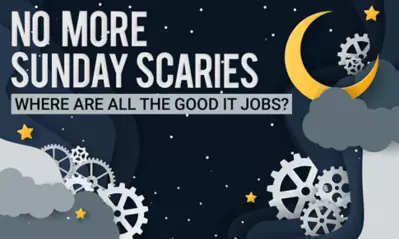Gen Z has more going for them than you think
This article was updated on╠²December 1, 2023.

Written by Elizabeth Exline

Whether you see them as digitally adroit or addicted, optimistic or entitled, committed to bigger causes or ,╠²Gen Z is on the rise.
Born between 1996 and 2010, Gen ZŌĆÖs oldest members are officially part of the workforce and are poised to comprise by 2025. That means change is coming to everything, including the workplace.
Get to know Gen Z
░«╬█┤½├Į╠²Career Coach╠²Jamie Johnson, MS, NCC, CCC, has seen it all when it comes to generational characteristics. She began her career by counseling Gen X, whose trademark independence endeared them to JohnsonŌĆÖs heart.
By 2005, she was coaching millennials who took an opposite approach to that of Gen X. ŌĆ£Suddenly, it was, ŌĆśShow me this. Show me that. How do I do this?ŌĆÖŌĆØ Johnson recalls. ŌĆ£It was what we call reaction formation in psychology: You go from one extreme to the other.ŌĆØ
So, where does that leave Gen Z? Major events like 9/11 and the Great Recession of 2008 are textbook knowledge for this generation rather than lived experiences. Digital life is a way of life (Gen Z reportedly comprises╠²), and so is mental illness. They have the╠²╠²of all generations, according to McKinsey & Company.
Recalibrating the norm
One experience that has directly impacted Gen Z is the COVID-19 pandemic. For many Gen Zers, it meant canceled or newly remote jobs and isolating virtual classrooms.
ŌĆ£Life changed, and they donŌĆÖt see life as what weŌĆÖve known in our traditional world,ŌĆØ Johnson says. ŌĆ£Remote became a new norm.ŌĆØ
In a nod to their resilience, however, Gen Z has embraced the possibility of virtual life for both better and worse. On the one hand, theyŌĆÖre more likely to demand a flexible approach to work-life balance. (And a four-day workweek!)
On the other hand, they avoid confrontation at all costs. ŌĆ£One thing about this group, they donŌĆÖt like to make waves,ŌĆØ Johnson says. If a conversation or an encounter gets uncomfortable, Gen Z is liable to just opt out the way one restaurant worker did when Johnson pointed out a problem with her order. Rather than assist Johnson, the worker simply closed the drive-thru window in her face.
If youŌĆÖve had a customer-service representative hang up on you, a co-worker avoid your phone call or an acquaintance ghost you, you know what Johnson is talking about. ╠²
Perhaps this penchant for disengagement explains why Gen Z is also facing something of an existential crisis. ŌĆ£IŌĆÖm dealing with a lot of Gen Z who donŌĆÖt know who they are or what they want to do. ŌĆ” They want to know, though, and they want the money. They want that instant gratification like what a video game or technology can give them, but they donŌĆÖt understand what it means workwise yet,ŌĆØ Johnson says.
The optimism of youth?
Even if they donŌĆÖt know what it all means (or maybe because they donŌĆÖt), Gen Z leads workers in hope and optimism when it comes to their careers. According to the 2023 Career Optimism Index┬«, 82% of Gen Z is more hopeful for the future of their careers as compared to 76% of baby boomers and 78% of Gen X.
This doesnŌĆÖt surprise Johnson, who says, ŌĆ£Before COVID, this group was dynamic. They were excited. They were ready to go. If you encouraged them to do things, they were going to try it.ŌĆØ
Optimism, however, doesnŌĆÖt guarantee happiness. The problem Gen Z faces is not unlike what their millennial predecessors encountered: an and the sense that theyŌĆÖre not fully equipped to make the life and career they want happen.
What does all this mean? , Gen ZŌĆÖs insecurities around skills and ability donŌĆÖt seem to impede expectations. Citing a , Insider reports more than 75% of Gen Z believes they should be promoted after a year of employment; 32% think that milestone should happen after six months.
And theyŌĆÖre apparently not particularly sentimental when it comes to their employers. According to the same Insider article, most of the surveyed Gen Z workers planned to .
Finding opportunity in change
As Gen Z boldly goes where no generation has gone before in terms of demanding better pay and perks, employers find themselves exploring ways to placate young workers.
that some companies provide ŌĆ£workversaryŌĆØ celebrations and new titles. Others develop step-by-step plans for employee career growth.
Such plans align with takeaways from the Career Optimism Index, which recommends offering upskilling and mentorship as a means of meeting employee and employer goals alike. Employees acquire ongoing skill development, and employers benefit from a veritable talent pipeline.
The benefits of investing in Gen Z go beyond talent retention, though. Johnson sees potential in this fledgling generation. Their belief in the importance of mental health and general well-being suggests they may fulfill the promise made by millennials of achieving greater work-life balance.
ŌĆ£I think weŌĆÖll see a whole new concept of what work means when they reach the age of management and above,ŌĆØ Johnson says.
And that digital deftness also promises change. If Gen Z can overcome the isolating social awkwardness of a digital life, they may just spearhead the next wave of economic opportunity.
ŌĆ£TheyŌĆÖre going to add technology to things we never dreamed of,ŌĆØ Johnson says.
It just may fall to older generations to give them the tools they need to succeed.╠²

ABOUT THE AUTHOR
Elizabeth Exline has been telling stories ever since she won a writing contest in third grade. She's covered design and architecture, travel, lifestyle content and a host of other topics for national, regional, local and brand publications. Additionally, she's worked in content development for Marriott International and manuscript development for a variety of authors.
Read more articles like this:



